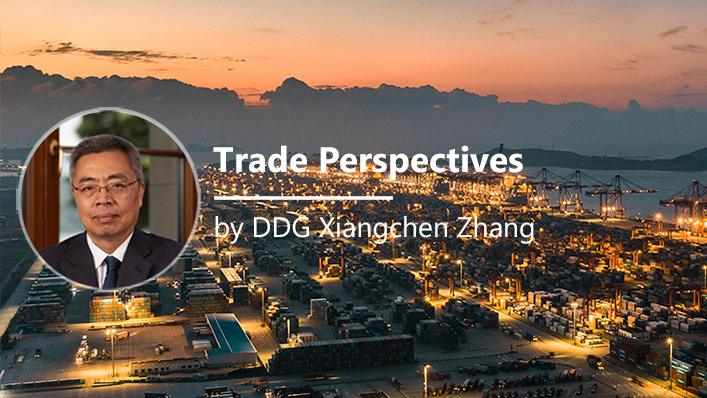
International trade offers least-developed countries (LDCs) a tried-and-tested route towards sustainable economic growth and development. But what can be done to help LDCs expand their share of global trade?
As LDCs strive to increase their exports, they continue to face hurdles, ranging from domestic capacity constraints to commercial and policy barriers in export markets.
A new collection of essays, titled “LDCs and the multilateral trading system — Volume 2”, co-published by the WTO and the Enhanced Integrated Framework (EIF), explores some of these challenges, proposes solutions and highlights ways in which LDCs could champion their own interests more impactfully.
The authors’ views were discussed at an event organized in cooperation with the EIF on 3 November.
The essays highlight the following recommendations:
1. Keep building momentum in agriculture negotiations at the WTO
Agriculture is a vital and growing sector for many LDCs, but at present certain trade measures impede their full integration into global markets. More efforts are required so that agriculture can deliver its potential for LDCs.
The WTO’s forthcoming 13th Ministerial Conference, which is due to take place in Abu Dhabi in February 2024, offers an opportunity to advance agricultural talks and to level the playing field for farmers in the developing world and elsewhere.
For example, one of the essays highlighted that members could agree not to impose export prohibitions or restrictions on foodstuffs imported by LDCs.
2. There should be more support for the development of services trade in LDCs
Services trade has the potential to galvanize the economic growth of LDCs. However, despite the LDC services waiver entering into force 12 years ago, LDCs’ share of global services trade is currently at 0.53 per cent.
A more effective strategy might be to work with development partners to overcome domestic and external obstacles to LDCs’ increased participation in global trade in services.
For example, additional Aid for Trade support could be directed at strengthening the inherent supply-side constraints facing LDC service supplying firms.
In addition, the essay on services suggests that given that two-thirds of LDC services exports flow to other developing-economy or LDC markets, technical assistance could help to build greater physical or digital connectivity among LDCs and members of regional groupings and agreements, such as the African Continental Free Trade Area (AfCFTA) and the Association of Southeast Asian Nations (ASEAN).
A Trade in Services for Development publication recently issued by the WTO and the World Bank emphasizes the importance of helping to improve the services-related skills of workers in LDCs, supporting LDCs’ participation in international policy discussions and addressing data gaps in services trade.
3. LDCs should engage actively in trade negotiations
LDCs’ share of global trade has not increased, even though many LDCs benefit from schemes where developed economies offer preferential treatment to imports from developing economies. Trade-distorting subsidies, import restrictions and commercial policy impediments created by other economies are among the reasons for this.
The Global Trade Alert (GTA) database reveals that while over 6,600 foreign trade policy interventions compiled since November 2008, could potentially weaken LDC exporters’ competitive advantage, fewer than 1,800 interventions might have created commercial opportunities for LDCs.
LDCs therefore have a strong incentive to carefully monitor these developments, and engage actively in the discussions relating to the role of subsidies in global trade.
For LDCs to better identify and act on market threats, they also need better data. Participating in the Swiss programme on Capacities for Trade Policies (C4TP) initiative — through which the GTA has started to share information on trade policy actions with LDCs — could help.
This publication and an earlier volume published in June 2023 stem from the joint effort of the EIF and WTO Secretariat to support the implementation of the Doha Programme of Action for LDCs for the decade 2022-2031. The views expressed do not necessarily reflect the positions or opinions of WTO members; they are intended to enrich debates around how LDCs can expand their participation in global trade and overcome the hurdles limiting their economic growth.
Reach us to explore global export and import deals